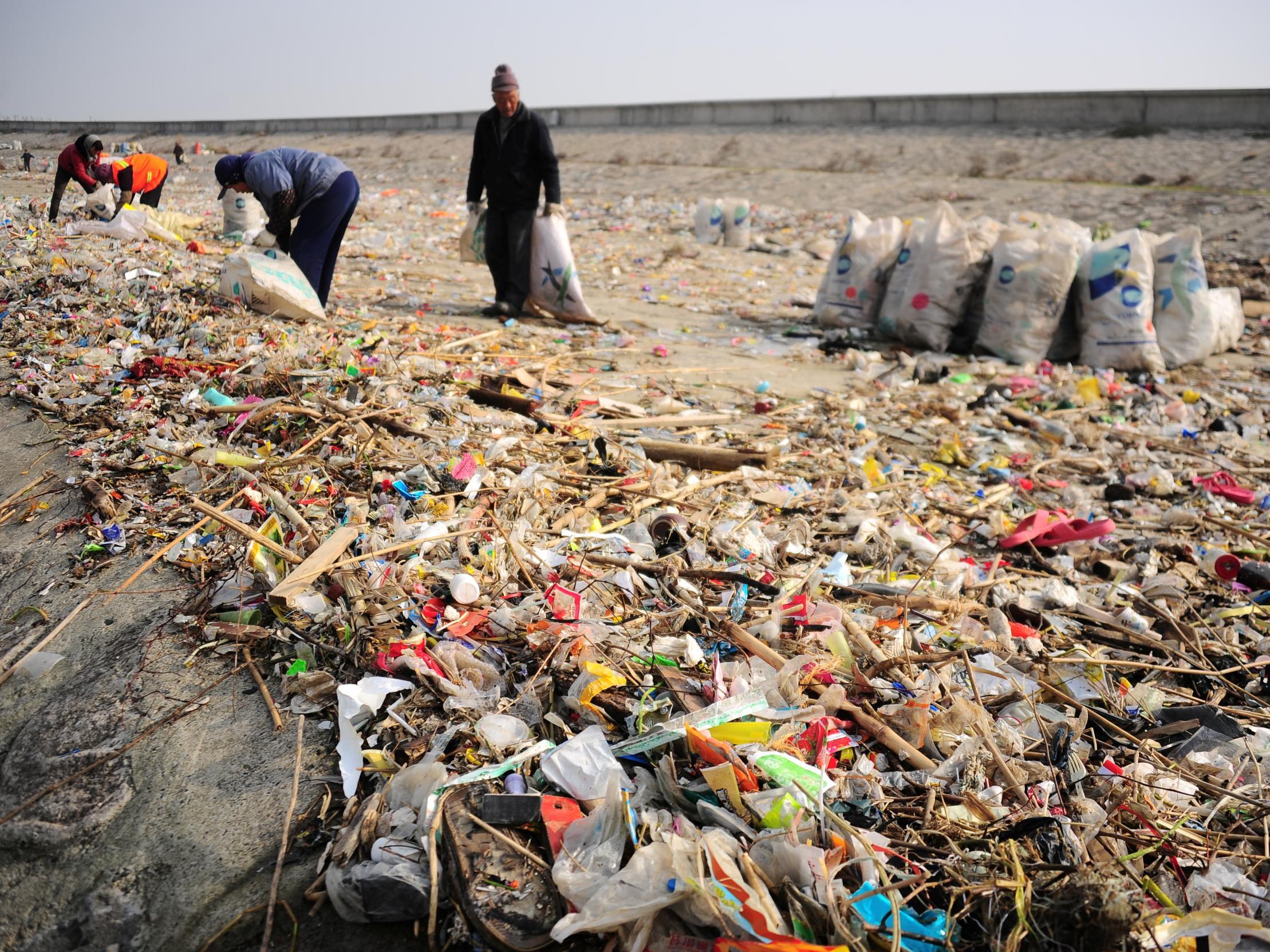China announces plan to phase out single-use plastics
China ramping up restrictions on production and sale of material

Your support helps us to tell the story
From reproductive rights to climate change to Big Tech, The Independent is on the ground when the story is developing. Whether it's investigating the financials of Elon Musk's pro-Trump PAC or producing our latest documentary, 'The A Word', which shines a light on the American women fighting for reproductive rights, we know how important it is to parse out the facts from the messaging.
At such a critical moment in US history, we need reporters on the ground. Your donation allows us to keep sending journalists to speak to both sides of the story.
The Independent is trusted by Americans across the entire political spectrum. And unlike many other quality news outlets, we choose not to lock Americans out of our reporting and analysis with paywalls. We believe quality journalism should be available to everyone, paid for by those who can afford it.
Your support makes all the difference.China has announced it is taking measures to curb single-use plastic products in a bid to address one of the nation’s worst environmental issues.
The country chucks out around 60 million takeaway food containers each day and huge quantities of untreated plastic waste are submerged in landfills or discarded in rivers.
While the average person living in China produces about half the solid waste of the average American, the Asian country has a far larger population.
China is ramping up restrictions on the production, sale and use of single-use plastic products, the state planner said on Sunday.
Single-use plastics have been classified as one of the world’s biggest environmental challenges by the United Nations.
Plastic bags will be banned in all of China’s major cities by the end of 2020 and banned in all cities and towns in 2022, the National Development and Reform Commission and the Ministry of Ecology and Environment, which issued the new policy, said.
Markets selling fresh produce will be exempt from the ban until 2025. Other items such as plastic utensils from takeaway food outlets and plastic courier packages will also be phased out.
The restaurant industry will be banned from using single-use straws by the end of 2020. Towns and cities across China must reduce the consumption of single-use plastic items in the restaurant industry by 30 per cent by 2025.
Some regions and sectors will also face restrictions on the production and sale of plastic products but it is not yet clear which geographical areas they are.
China also banned the import of all plastic waste.
The production and sale of plastic bags less than 0.025mm thick will be banned, as will plastic film less than 0.01mm thick for agricultural use.
China is already boosting recycling rates and is building dozens of “comprehensive resource utilisation” bases to ensure that more products are reused as part of its war on waste.
The amount of plastic polluting China’s coastal waters has rocketed in the wake of a government push to prevent rubbish being deposited in the nation’s rivers.
According to the environment ministry, more than 200 million cubic metres of waste was found floating off Chinese shores in 2018, up 27 per cent on the previous year.
Additional reporting by wires
Join our commenting forum
Join thought-provoking conversations, follow other Independent readers and see their replies
Comments